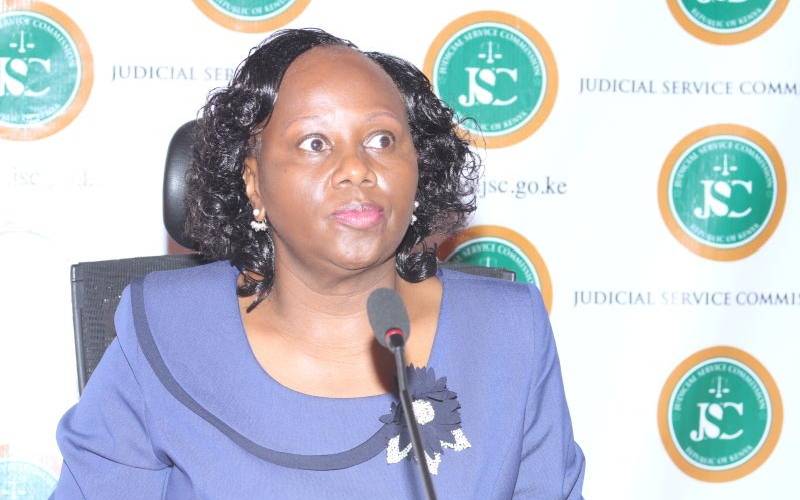×
The Standard e-Paper
Join Thousands Daily

Prof Kameri Mbote when she was interviewed for the position of Chief Justice by members of the Judicial Service Commission at the Supreme court on Tuesday, April 13, 2021. [Collins Kweyu, Standard]
Prof Patricia Kameri Mbote today found herself in unfamiliar territory for supporting the creation of the office of the Judiciary Ombudsperson.